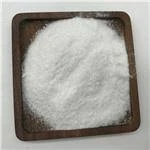Boiler Feed Water Treatment Importance and Methods
Boiler feed water treatment is a crucial aspect of industrial and power generation systems. The primary purpose of treating boiler feed water is to prevent scale formation, corrosion, and reduce the risk of hazardous operational conditions within the boiler system. Proper treatment extends the life of the boiler, enhances operational efficiency, and ensures safety.
Why is Boiler Feed Water Treatment Important?
The feed water used in boilers originates from various sources, including rivers, lakes, and municipal supply systems. This water often contains impurities such as dissolved solids, suspended particles, gases (like oxygen and carbon dioxide), and biological organisms. If left untreated, these impurities can lead to several issues
1. Scale Formation High mineral content in the feed water can lead to the formation of scale deposits inside the boiler tubes. Scale acts as an insulating layer, reducing heat transfer efficiency, which can cause overheating and ultimately result in boiler failure.
2. Corrosion Oxygen and carbon dioxide can contribute to the corrosion of metal surfaces in the boiler. This can lead to leaks and structural failures, causing costly downtime and repairs.
3. Foaming and Carryover Impurities in the feed water can result in foam formation during steam generation, leading to carryover of water droplets into the steam system. This can damage turbine blades and other equipment downstream.
In summary, untreated feed water leads to increased operational costs, reduced efficiency, and the risk of catastrophic failures, underscoring the necessity of an effective water treatment program.
boiler feed water treatment pdf

Methods of Boiler Feed Water Treatment
To mitigate the issues associated with untreated feed water, various treatment methods can be implemented. These methods can be broadly categorized into physical, chemical, and mechanical treatments.
1. Physical Treatments - Filtration Mechanical filters are employed to remove suspended solids and larger impurities from the feed water. This step is usually the first line of defense in the treatment process. - Ion Exchange This process involves the exchange of harmful ions (like calcium and magnesium) in the feed water with less harmful ones (like sodium). Ion exchange resins can effectively soften water, reducing the potential for scale formation.
2. Chemical Treatments - Oxygen Scavengers To prevent corrosion, chemicals such as sulfites are added to the feed water to react with dissolved oxygen, thereby removing it from the water before it enters the boiler. - pH Adjustment Maintaining the appropriate pH level is critical in preventing corrosion. Chemicals like caustic soda or alkaline compounds are often added to adjust the pH to a more neutral level. - Scale Inhibitors These chemicals interfere with scale formation by preventing mineral crystallization or by dispersing existing particles within the water.
3. Mechanical Treatments - Reverse Osmosis (RO) This advanced filtration method effectively removes a wide range of impurities, including dissolved solids and organics. RO systems can produce high-quality feed water suitable for high-pressure boilers. - Demineralization More stringent than ion exchange alone, demineralization systems remove nearly all mineral content from the feed water. They are especially beneficial for high-pressure steam applications.
4. Blowdown Control Regular blowdown is necessary to remove concentrated impurities from the boiler water. The frequency and operation of blowdown should be carefully controlled to minimize water loss while maintaining water quality.
Conclusion
In summary, effective boiler feed water treatment is essential for the reliable operation of boilers in various industries. By employing a combination of physical, chemical, and mechanical methods, operators can mitigate the risks associated with untreated water. Investing in a comprehensive feed water treatment program not only protects valuable equipment but also enhances overall operational efficiency and safety.

